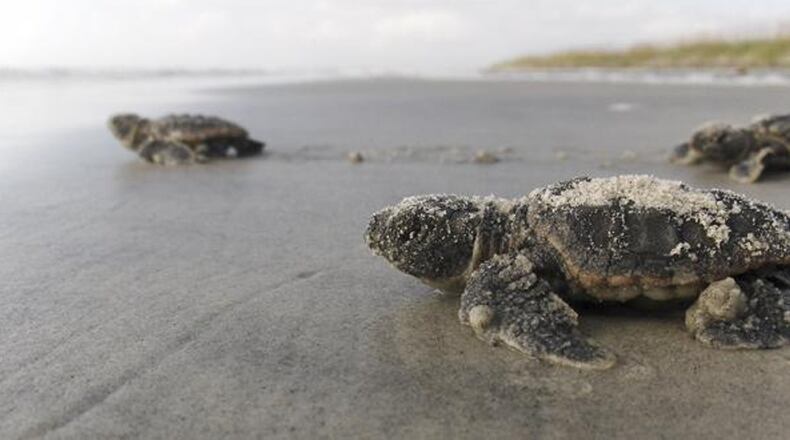Coastal and environmental groups are appealing a judge’s ruling allowing development of posh Sea Island homes claiming harm to loggerhead turtles and pristine beaches.
A state administrative law judge ruled in August that the Sea Island company can build eight expensive homes — lots begin at $3.5 million — on a “spit” of land below the famed Cloister Hotel. The beach practically disappears at high tide.
The Altamaha Riverkeeper, represented by GreenLaw, and One Hundred Miles, represented by the Southern Environmental Law Center, are appealing the judge’s ruling in Fulton Superior Court. They argue that the administrative judge impropely ruled that a proposed 350-foot-long rock groin would keep endangered turtles from laying eggs and hatchlings from returning to the Atlantic Ocean. They add that the sliver of beach could be renourished without a groin.
“As sea-level rise and related shoreline retreat are increasingly impacting our coast, it’s critical to look to solutions that will provide the greatest benefit to the environment and to the people and wildlife that depend on healthy shorelines and beaches,” Megan Hinkle, staff attorney for the law center, said in a statement. “Groins and other structures that result in the loss of shorelines and valuable ecosystems are not an acceptable solution for the Georgia coast.”
Sea Island, a favorite coastal retreat for well-heeled Atlantans, where suites at The Cloister run $1,000 a night, is selling home lots with unparalleled ocean views. Between 2003 and 2013, though, the beach alongside the planned development shrank by 108 feet. The spit is the only spot on Sea Island ineligible for federal flood insurance.
Environmentalists also say the groin, and a sand dune built with as much as 120,000 cubic yards of sand, will cause the beach to shift and could also impact nearby St. Simons Island.
Administrative Law Judge Kristin Miller, in her August ruling, said: "Weighed against Sea Island's interest in protecting its valuable upland property, the modest adverse impacts of the permitted project are not unreasonable."
The U.S. Army Corps of Engineers is also reviewing the permit application. Earlier, a sea turtle expert with the Georgia Department of Natural Resources, testified that the proposed groin would “unreasonably” interfere with conservation of the endangered turtles.
Sea Island Co. representatives were disappointed Tuesday with the appeal, labeling Judge Miller’s ruling “very thorough and careful.”
In a statement, Scott Steilen, the company’s president, said: “Sea Island has a responsibility to protect its property from continuing erosion, by investing our own funds, using approved methods, and securing all required permits, and we hope to be able to move forward soon to construct the project.”
About the Author
The Latest
Featured


